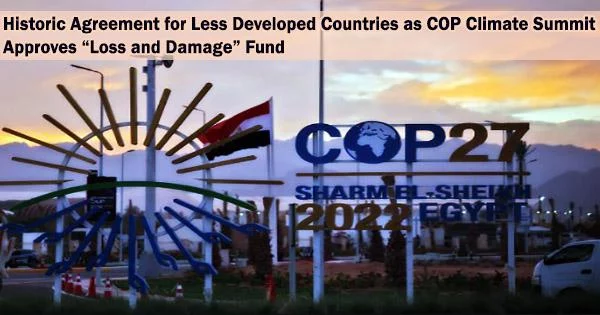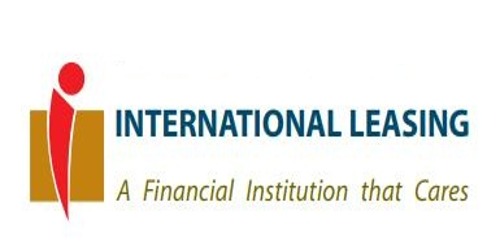An agreement to establish a new fund to compensate impoverished countries for the “loss and damage” they are facing as a result of extreme weather made worse by climate change was ultimately reached Sunday by government ministers and negotiators from close to 200 countries.
The early Sunday morning accord also reaffirmed efforts to keep the increase in the global temperature to 1.5 degrees Celsius above pre-industrial levels, a critical temperature barrier.
The two-week-long COP27 climate summit was held in the Red Sea resort town of Sharm el-Sheikh, Egypt, against a backdrop of escalating geopolitical tensions, extreme weather occurrences, and an intensifying energy crisis.
Even though a rush of U.N. reports released prior to the meeting demonstrated how near the planet is to irreversible climate breakdown, delegates struggled to reach consensus on a variety of problems.
The degree of disagreement among climate envoys caused discussions to continue over the deadline on Friday, and activists have accused the United States of playing a “deeply obstructive” role by obstructing the demands of developing nations.
Battles over whether to name all fossil fuels or just coal in the decision language and whether to establish the “loss and damage” fund for nations affected by climate-related disasters were two of the major sticking issues.
Many believed that the success of the conference depended on persuading wealthier nations to agree to establish a new fund because the bitterly contentious and emotionally charged topic of loss and damage dominated the U.N.-mediated talks.
As the first time that loss and damage money was formally added to the COP27 agenda, the conference created history. Climate-vulnerable nations first brought up the subject 30 years ago.
The European Union announced late on Thursday that it would be willing to support the proposal of the G-77 group of 134 poor nations to establish a new reparations fund, raising chances of a breakthrough on loss and damage afterwards.
The proposal was welcomed by some countries in the Global South, although campaigners decried the offer as a “poison pill” given the bloc said it was only willing to provide aid to “the most vulnerable countries.”
The establishment of a fund to remedy loss and damage has long been opposed by wealthy nations, and many policymakers worry that acknowledging responsibility might spark a wave of legal actions from nations at the forefront of the climate disaster.
The final agreement was reached after tense negotiations throughout the night, with many delegates exhausted by the time the deal was announced around 4 a.m. local time.
There has been some dissatisfaction about the lack of emphasis on increasing targets to reduce emissions, and there are still a lot of specifics to be worked out regarding the loss and damage fund, particularly the difficult question of which countries would contribute to the fund.
“I am pleased that COP27 has opened a new chapter on financing loss and damage, and laid the foundations for a new method for solidarity between those in need and those in a position to help,” European Commission President Ursula von der Leyen said in a statement.
“COP27 has kept alive the goal of 1.5C. Unfortunately however, it has not delivered on a commitment by the world’s major emitters to phase down fossil fuels, nor new commitments on climate mitigation,” she added.
















